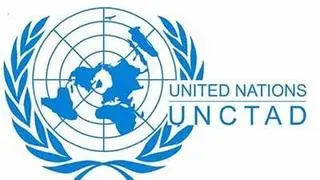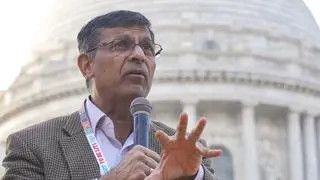In a major ruling, Punjab & Haryana High Court has quashed a demand by the GST Department against Genpact India on the issue of intermediary versus BPO (Business Process Outsourcing). The Court also directed refunds to be given.
GST law says intermediaries are taxable and do not qualify as exports. Refunds were accordingly rejected.
“We are of the considered view that the impugned order dated February 15, 2021 (Demand Order by GST Department) holding the petitioner to be an ‘intermediary’ under Section 2 (13) of the IGST Act, cannot sustain. The same as such is quashed,” a bench of Justices Tejinder Singh Dhindsa and Deepak Singh Manchanda said in a ruling. It also restored the refund order amounting to over ₹26.34 crore. It also directed that the “benefit of this order shall ensure to the petitioner for grant of subsequent refunds as well.”
Related Stories
Flipkart reduces focus on instant delivery service Flipkart Quick
Launched in 2020, Flipkart Quick started as 90-minute grocery delivery service and over time the delivery time was reduced to 30-45 minutesThe petitioner, Genpact, is a BPO service provider which .challenged an order passed by the Additional Commissioner CGST (Appeals) Gurugram. It was held that the services provided by the petitioner are in the nature of “Intermediary Services” as per Section 2 (13) of the IGST Act and do not qualify as “export of services” in terms of Section 2 (6) of the Act. The order had rejected the refund claim of unutilized Input Tax Credit (ITC) used in making zero-rated supplies of services without payment of IGST.
Scope of intermediary
The bench observed that as per the definition of “intermediary” under GST law, three conditions must be satisfied. First, the relationship between the parties must be that of a principal-agency relationship. Second, the person must be involved in the arrangement or facilitation of provisions of the service provided to the principal by a third party. Finally, the person must not actually perform the main service intended to be received by the service recipient itself. The scope of an “intermediary” is to mediate between the principal service provider (the third party), and the beneficiary (the agent principal), who receives the main service and expressly excludes any person who provides such main service “on his own account.”
Related Stories
Integrated infrastructure development must for inclusive growth: PM Modi
Modi was addressing a public meeting in Visakhapatnam on Saturday after the formal inauguration and foundation stone ceremony of development works in Andhra Pradesh involving an investment of about ₹10,740 croreThe bench noted that the petitioner provides the main service directly to the overseas clients of Genpact International Incorporated (GI) but does not get any remuneration from such clients. It is GI which gets paid by its customers to whom the services are being provided directly by the petitioner. There is also nothing to show that the petitioner neither has a direct contract with the customers of GI, nor it is liaisoning or acting as an “intermediary” between GI and its customers. “All that is evident from the record is that the petitioner is providing the services which have been sub contracted to it by GI. As a Sub -contractor it is receiving fee/charges from the main contractor,” the bench said, clarifying that sub-contracting for a service is not an “intermediary” service.








Comments
Comments have to be in English, and in full sentences. They cannot be abusive or personal. Please abide by our community guidelines for posting your comments.
We have migrated to a new commenting platform. If you are already a registered user of TheHindu Businessline and logged in, you may continue to engage with our articles. If you do not have an account please register and login to post comments. Users can access their older comments by logging into their accounts on Vuukle.